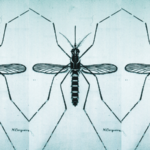New York Times bestselling author Ace Atkins gave me the title for this column five years ago. My family and I were on a trip down to Pensacola Beach. I’d just gotten out of coaching and started writing seriously. The only author I “knew” was Ace.
We’d met back in 2010 at the Yoknapatawpha Writers’ Workshop in Oxford, Mississippi. Ace and I were former college football players. We hit it off instantly. Once the conference was over, however, we didn’t keep up much. I was coaching high school football and Ace was publishing two novels a year (along with his Quinn Colson series, Ace has also carried on Robert B. Parker’s iconic Spenser character for the last decade).
Fast forward to 2016, and there I was, driving south through Oxford with my wife and kids. I sent Ace a text, asking if he’d be willing to meet up and grab a few drinks. This was his response:
“Sure, man. Let’s talk shop.”
Later that night at Ajax Diner, I got a crash course in crime fiction, classic movies, and the publishing business. Since then, Ace has given me sage advice at every turn along the way. He’s one of the good guys, that’s for damn sure. He’s always willing to pay it forward. And, oh yeah, the guy knows a thing or two about “talking shop.”
Eli Cranor: Do you remember sending me that text? “Let’s talk shop” felt like such a football term. Like something one of my old coaches would’ve said.
Ace Atkins: It’s all the same, man. I grew up in a football household with my dad being a coach, then being around the game through college. I would say that reading books or watching movies is like watching game film. It all comes from the same place.
EC: I interviewed Megan Abbott for the previous column. She basically said the same thing.
AA: I think that’s why Megan and I are such great friends. We do a conference call like this every week with a few other writing buddies. We choose a movie, watch it, then dissect and discuss. It’s fun—it’s a form of entertainment—but it’s really like work. We’re figuring out what worked and what didn’t and what we liked. It’s just like with football. You never really punch the clock and leave. It’s something you keep with you all the time.
EC: Speaking of punching the clock, if I had an office like yours, I don’t know if I’d ever leave. From what I recall, you’ve got a gorgeous office that overlooks the Oxford Square. How long has that been your writing place?
AA: Traditionally, I’ve always worked from home. This goes back twenty years to when I was a newspaper reporter. I had a very busy schedule, working late every night. But when I was off on the weekends, that’s when I’d write for my books. My first office was actually in my bedroom because I had a studio apartment. When I became a full-time writer and moved to Mississippi, I still worked from home. After a while, my wife and I had kids, the house got noisier, and it was time to rent an office. I actually had a series of offices before the one I have now on The Square. What that does for me is it gives me a reset button. When I stick around the house, I always find something to do. Some distraction. When I go to the office, I’m there to work. It’s my job.
EC: Can you give us more details of your office? Any specific artifacts you have on your walls or desk?
AA: I enlisted a good friend of mine here in Oxford named Erin Abbott to make a gallery wall in my office. Erin’s a writer, a photographer, a designer—just a brilliant artist. She put all my influences on that wall, the people I really draw from every day. There’s Burt Reynolds. There’s Elvis and Hemingway. There’s Faulkner. Erin did it in this mosaic style that I could’ve never done. When I come in and see that wall, it’s kind of like checking in with all the people who inspire me.
EC: Faulkner, Hemmingway, Elvis and Burt Reynolds . . . What a list.
AA: Those are all my people, man. It’s all the same thing.
EC: Something about your career that really stands out to me is the fact that you do two books a year. That’s crazy. How on earth do you pull this off? Do you have a strict monthly—or even weekly—schedule?
AA: It is tough. I turn in two manuscripts a year, and that’s complete. Copy edited. Out the door. Everything. That’s also promoting two books during that time. I’ve been doing that now for over ten years. I write the Quinn books from my own neck of the woods. Then I also write the world of Boston, working for the estate of the late great writer, Robert B. Parker, who was one of my heroes. But listen, I have good days and bad days. I’d like to tell you I’m just down there cranking scenes out every day, but I’m not. One thing I hate is being rushed. I never want to feel like I need to produce a huge amount of pages in one day without quality control. The only way I know how to combat that is by working every day. I work weekends and holidays. That ensures that I don’t have to get into a position where I’m rushed. This also keeps my head in the story. I have such a hard time getting back into a manuscript. So that’s really my thing—writing every day. And there are some days I don’t want to. I’m here with the family, hanging out, but I go in anyway. That’s the great thing about having a remote office. Having to kind of reset things and get in that mindset of getting to work. I don’t know how much longer I’ll be writing two books a year, but that’s how I’ve made it work.
EC: That’s quite a work ethic. Sounds like your history as a newspaper reporter has bled over into your writing career.
AA: Oh, yeah. I came into this world with deadlines. I already had the mindset to hit it every day. I know writing two books a year sounds like a rough schedule, but it’s considerably easier than what I used to do. I wasn’t only writing stories every day, sometimes I was writing three stories. On top of that, there were the interviews, the crime scenes… You get the picture. So the fact that I just have to produce pages every day and make them up—that’s not too bad at all.
EC: How long are you working during these every day sessions?
AA: I try to get to the office around nine. Some days I run or workout beforehand. I usually take a break around one. I might go to Proud Larry’s—one of my favorite Oxford restaurants—and have a nice lunch. They know me so well, most days they already have my favorite chicken salad waiting when I get there. There’s also a place called Uptown Coffee. That place keeps me going. First thing I do when I show up in the morning is park my car and go to the coffee shop. I know those people like coworkers. After lunch I’ll work for another few hours. Most days I’m leaving by five thirty or six o’clock.
EC: Just a regular nine to five job, huh?
AA: Yeah, it is. I think the biggest thing for all of us these days are the distractions. That’s why, at least for me, having a remote office is so important.
EC: Do you aim for a certain amount of words each day?
AA: I don’t do a word count. For me, movies and literature are all the same. So when I go into the office, I usually break it down by scene. I have a certain amount of scenes I want to write. It’s almost like being a director. I’ve been on film sets before, and they always have a shooting schedule. So each day, I just know what I’m going to be shooting. I never look at word count. I’ve been doing this so long I kind of have a feel for when the book or a chapter is done. Words are cheap anyway. That’s one thing I learned from the newspaper business. You try to cut words.
EC: That’s the most logically sound reasoning I’ve ever heard for not doing a word count.
AA: Yeah, man. I spent all day yesterday just going through and cutting words to distill the quality I was after. I cannot say enough about how lucky I was to work at a newspaper with some of the best damn editors I’ve ever known. They taught me so much about word quality. When you only have eight inches to tell a story, you really make each word count.
EC: It’s time to start the next Quinn book—or the next Spenser—what’s the first thing you do?
AA: Every book is so different. I’m working on my twenty-ninth book right now and already thinking about what the thirtieth book will be about. A funny thing I always tell people is that it’s whatever works for you at the moment. What worked for me on book twenty is not necessarily what worked for me on book twenty five. I’m very superstitious. I think that goes back to being in athletics. It might be a certain kind of hat, or keeping a mustache. I’m going to keep on that thing that keeps me going. I have outlined books and felt I had success doing that. I’ve never outlined too intently. I remember one time I was at a writer’s conference and this guy pulled out this notebook. It was huge. It looked like a scroll from ancient times. I thought to myself, Geez, if he would’ve gotten to work he probably could’ve finished the book by now. Just write the damn scene, man. But, yeah, I do try to plan ahead. I am a planner. I’ll spend about a month getting familiar with whatever world I’m about to write. Writing series cuts out some of my research. I know Boston. I certainly don’t have to do any research for Quinn and his world. That’s Tibbehah County. That’s right outside my windows here.
EC: While you’re doing that first month’s research, are you also making a rough outline?
AA: I keep a Moleskin journal. I sketch out ideas in there. It’s not very mechanical. Just scenes. I hate spending too much time at the keyboard. Social media or email. Whatever. When I don’t have to spend time on the keyboard, I really try to get away from it. That’s why I do most of that early part in the journal.
EC: That ties into something I’ve asked everybody. I keep searching for an author who still writes everything longhand. I’ve read every Elmore Leonard book, and that’s how he did it. He swore by longhand, but I can’t find anyone who still writes that way. Megan Abbott’s answer was pretty straight forward. She just said she didn’t have the time to write longhand.
AA: It’s not a time issue for me. I just compose better at a keyboard. I’ve got a keyboard that’s so old a young guy came into my office a few years back to take pictures for his Instagram, and he wanted a picture of my keyboard. Not because it was Ace Atkins’s keyboard, just because it was so damn old. It’s an IBM Model M. When you hit it, it sounds like a typewriter. Reminds me of being in a newsroom. I had to get a special converter and all that stuff, but that’s how I like to work. Elmore Leonard was a friend of mine, and he did believe in longhand. He slaved away for years in front of a mechanical typewriter as an ad man. He relished the time away from the keyboard. I think he probably would light up a joint or something, have his pen in his hand, and that got him on track.
EC: What gets you on track? I know you enjoy bourbon and good cigars. Are those a part of your writing process?
AA: I try to keep healthy. Writing is a really unhealthy job. You’re seated all day, and that’s not good. As I get older I’m very conscious of that. I try to get up and go for long walks. When I was first getting started, I lived in Tampa. Part of my beat was covering this old cigar district called Ybor City. It was not unusual for me to purchase a cigar, light it up, and start tapping on my keyboard. That was a real part of my process. I don’t do that as much as I used to, but there are days where I’ll have a cup of coffee and a cigar going. It’s a very pleasant time to write. Very relaxing. Keeps me focused and in the moment. I try not to rely on it too much these days. As far as bourbon goes, I’ve written a few pretty damn good scenes with a bourbon by my side. A little bit is just about perfect to get going. Too much will send you in the wrong direction.
EC: Do you have a favorite brand of cigar or bourbon?
AA: Drew Estate Cigars.
EC: What’s your bourbon of choice?
AA: Any.
EC: You mentioned physical fitness earlier. Walking. Running. Weights. How do those activities impact your craft?
AA: I’ve got to do it. I have so many old football injuries. If I’m seated too long, I’m in a decent amount of pain. It’s not conducive to my work. So I make it part of my routine. When I get off of here with you, I’ll probably go for about four miles. Later in the day, I’ll try and get in the gym. It’s all part of the program. You have to balance those two parts of your life as a writer.
EC: Okay, so you’ve been writing (and working out) and you finally finish a draft. What do you do next?
AA: I know I keep harping on the newspaper training, but back then, I didn’t have the luxury of turning a story into my editor and saying, “Hey, here’s a first draft. What do you think?” I had to hit a deadline, and it had to be right. When I work on a scene now, I edit as I go. I heard one writer say, “Oh, my first draft is just spaghetti on the wall. It’s just a mess.” That would drive me absolutely bat-shit insane. I’d feel like I was living in a dirty house. I’d be working and moving ahead on a story that’s dirty, and that would drive me nuts. As I’m writing, I constantly go back and clean things up. So by the time I finish the last scene, I’ve worked all my chapters over for continuity, structure, word choice, everything.
EC: Do you let anyone else read your manuscripts before you send them off?
AA: My wife, who is also a former journalist and a terrific writer, reads each book. I show it to her in twenty-five page chunks. That keeps me moving. Which kind of brings this thing full circle. You asked earlier about how I deliver two books a year, my wife’s another part of that process, probably the most important part.
—Author photo: credit Joe Worthem

















